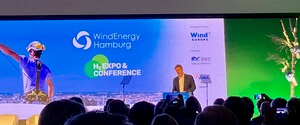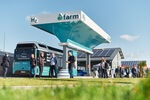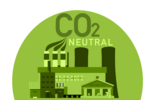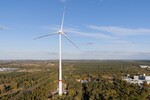News Release from windfair.net
Wind Industry Profile of
Wind industry wants to get things done
Not only have four years passed since the last WindEnergy Hamburg took place, but the world has changed a lot. A Corona pandemic that has been ongoing for more than two years and has caused severe disruptions in global supply chains, and a war of aggression by Russia on its neighbor Ukraine that has triggered an unprecedented energy crisis are to be handled. Add to that climate change, which is making itself felt around the world and taking on increasingly dire proportions. Times are tough.
Nevertheless, there is a spirit of optimism in the packed halls of the Hamburg show. 1,400 exhibitors from 37 countries meet an estimated 30,000 visitors from all over the world. What is striking is that the proportion of international exhibitors has increased compared to the last attendance fair in 2018 and now stands at 55 percent. The industry has longed to finally meet and exchange ideas in person again after more than two years of pandemic.
'Getting things done' is the motto of the hour, emphasized GWEC CEO Ben Backwell at the opening of the trade show. Wind energy in particular is currently very popular, because the war has shown Europe how dependent it has become on fossil fuel supplies from Russia. This is to be changed as quickly as possible. Shortly this will be done by supplying LNG from other parts of the world, but in the long term it will only be achieved by a massive and accelerated expansion of renewable energies.
Renewables are in great demand these days, because they are the only sensible way out for energy supply against climate change - and the most cost-effective one. "More renewables, more wind energy, and as quickly as possible!" is how Sven Utermöhlen, CEO of RWE Renewables and Chairman of the European wind energy association WindEurope, sets the agenda. The time of long speeches and being put off is over. The industry has shown this self-confidence right from the beginning of the trade fair with the 'Hamburg Declaration' describing which decisions need to be made most urgently to overcome the energy and climate crisis.
 In Germany in particular, the dependencies on Russia have become very clear in recent months. Not an easy job for German Economics Minister Robert Habeck (see photo on the left), who has since been trying to remove obstacles to the expansion of renewables and find alternatives to Russian natural gas supplies.
In Germany in particular, the dependencies on Russia have become very clear in recent months. Not an easy job for German Economics Minister Robert Habeck (see photo on the left), who has since been trying to remove obstacles to the expansion of renewables and find alternatives to Russian natural gas supplies.
Habeck kept the date free to give the keynote speech at the opening of the show. No wonder, since he has already been a strong advocate for wind power in his previous role as Environment Minister of Schleswig-Holstein, the federal state in the north of Germany which has been a pioneer in wind expansion. "The importance of wind power and the expansion of renewables as a whole is more urgent and important today than ever before," he stressed. "Renewables are not the problem, they are the answer!"
He makes a strong case for the abolition of the 10H rule in Bavaria and criticizes the Bavarian government for their blockade attitude. He points to the opportunities and possibilities offered by green hydrogen in connection with offshore wind power. He announces that by the end of the year, the German government plans to define a national hydrogen strategy.
Trade show visitors can see how quickly this still fairly new industry has developed in recent months at the H2 Expo & Conference taking place on the show ground at the same time. Here extensive plans and projects of the hydrogen industry are presented.
However, the Federal Minister of Economics did not come alone, but brought high-ranking politicians from Great Britain, Norway and Turkey. Especially in Turkey, wind energy has been booming in recent years. The country is in first place in Europe in the expansion of onshore wind farms. With onshore wind booming, Turkey is now looking to tap into its vast offshore resources. Thus, the port of Izmir is to be converted into an offshore hub, announced the Turkish Minister of Industry.
The mood among exhibitors is quite good despite numerous problems like digitalization progressing too slowly, the vexed issue of the duration of permitting processes still not being solved, and the shortage of skilled workers becoming ever greater. The industry is sure that these problems can be overcome - if politics provide the necessary stability. In any case, German Economics Minister Robert Habeck is backing the wind industry: "We have to move forward on the path of the energy transition, always forward." There are no alternatives.
- Author:
- Katrin Radtke
- Email:
- press@windfair.net
- Keywords:
- WindEnergy Hamburg, trade fair, exhibition, offshore, onshore, Germany, market, hydrogen, obstacles, challenge, politics



























